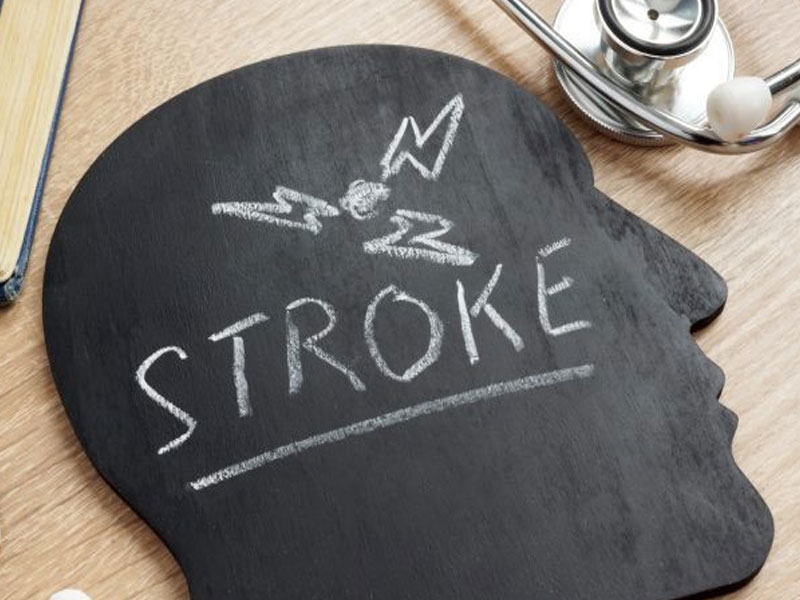Potential risk of stroke recurrence predicted with Artificial Intelligence
SOURCE: HEALTHEUROPA.EU
SEP 01, 2021

iStock/designer491
Patients’ risk of suffering stroke recurrence can be precisely forecasted with the implementation of Artificial Intelligence (AI), a new study has suggested.
A novel study presented at the European Stroke Organisation (ESO) Conference has suggested that AI can be employed to create a bespoke and accurate assessment of a patients’ potential risk of stroke recurrence, a significant advancement in mitigating the life-threatening condition.
The research team, comprised of scientists from Vall d’ Hebrón University, Barcelona, Spain, believe their study will aid in distinguishing the most crucial factors in mitigating stroke recurrence, estimating that the research will help to prevent thousands of strokes in Europe annually. This may aid in drastically reducing deaths and cases of disability.
The prevalence of stroke recurrence
Prior studies have indicated that 25% of patients who survive a stroke will suffer another in their lifetime, with up to 80% of these incidents being preventable by taking the rights measures, such as optimal treatment strategies and changes to lifestyle. The frequency of people living with stroke is calculated to rise by 27% between 2017 and 2047 in the European Union (EU), which experts believe is due to an increase in the number of people over 70.
Mitigating stroke with AI
For their study, the researchers employed calculations based on non-modifiable risk factors, such as age and ethnicity, and modifiable lifestyle risk factors and habits such as body weight, smoking, diet, obesity, blood pressure, cholesterol, physical activity levels, and treatment compliance, in addition to socio-economic factors. These elements were utilised to develop an accurate prediction of a patients’ risk of stroke recurrence within three months, one year, and over a year, which will aid in preventing stroke recurrence and enhancing treatment adherence.
The team employed a dataset of 41,325 patients who were admitted with a stroke diagnosis in 88 public hospitals over six years, which they then exposed to an AI-based model that proficiently created an individualised risk of stroke recurrence for each patient for three and 12 months after the incident.
Lead author Giorgio Colangelo, an AI Research Manager at Vall d’ Hebrón University Hospital’s Institute of Research (VHIR), commented: “We were able to use AI to predict the stroke recurrence at three and 12 months on an individual level, and knowing this risk has clinical value for doctors and for patients. Risk factors included high blood pressure and raised cholesterol, atrial fibrillation, or sleep apnoea. We also determined and quantified what are the most relevant risk factors and which of them each patient can modify in his or her lifestyle.”
Dr Marta Rubiera, Neurologist at Vall d’ Hebrón University Hospital and coordinator of the study, said: “We hope the data may be used to create a much more personalised prediction of if, and when, patients might have another stroke, and that by explaining the impact of individual risk factors, it will make patients more likely to comply with any treatment prescribed or lifestyle changes suggested, reducing the likelihood of having another stroke.”
Dr Marc Ribo, Interventional Neurologist and Chief Scientific Officer at Nora Health, which also participated in the study, concluded: “Patient awareness and empowering self-care are crucial to reducing the risks of recurrent stroke. This study will help inform the personalisation of a recently developed app, NORA, and greatly improve patients’ risk management.”
LATEST NEWS
WHAT'S TRENDING


Data Science
5 Imaginative Data Science Projects That Can Make Your Portfolio Stand Out
OCT 05, 2022

Eerily realistic: Microsoft’s new AI model makes images talk, sing
SOURCE: INTERESTINGENGINEERING.COM
APR 20, 2024
80% of AI decision makers are worried about data privacy and security
SOURCE: ARTIFICIALINTELLIGENCE-NEWS.COM
APR 17, 2024
AI Is Set To Change Fertility Treatment Forever
SOURCE: HTTPS://CODEBLUE.GALENCENTRE.ORG/
NOV 06, 2023
AI-empowered system may accelerate laparoscopic surgery training
SOURCE: HTTPS://WWW.NEWS-MEDICAL.NET/
NOV 06, 2023
Here’s Everything You Can Do With Copilot, the Generative AI Assistant on Windows 11
SOURCE: HTTPS://WWW.WIRED.COM/
NOV 05, 2023
Tongyi Qianwen, An AI Model Developed By Alibaba, Has Been Upgraded, And Industry-specific Models Have Been Released
SOURCE: HTTPS://WWW.BUSINESSOUTREACH.IN/
OCT 31, 2023




